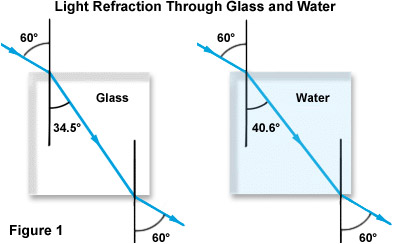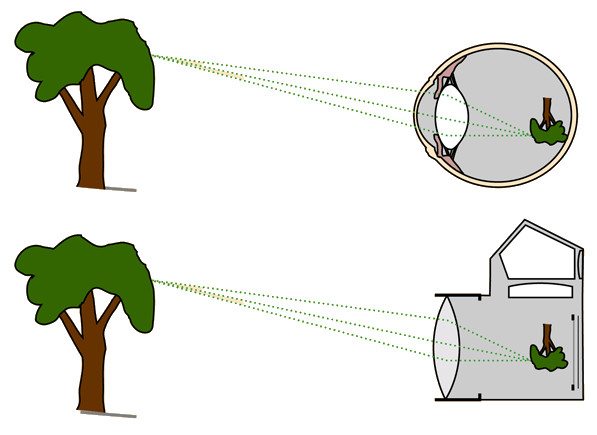Question #bf1d7
1 Answer
See below
Explanation:
One of the most interesting cases that I can tell you right off the bat on why the refraction of light is important is that in a world where refraction did not occur, you would NOT be able to see images around you.
Why do I say that? Well, first let's define what refraction is.

Figure 1: The angle of incidence is
So why is it that we would not be able to see images around us were it not for refraction?
When light rays coming from the object (let's say a tree) travel in air and hit the boundaries of the eyes, hitting the cornea first, they refract due to the differences in the refractive indices of the two media (air vs cornea). Due to shape of the cornea, light rays will converge just enough so that an image is formed at the retina.

There, information is sent down to the optic nerve and relays it to the brain for processing. If both the air and the cornea of the eye had the same index of refraction, light rays would not be able to refract, and therefore, no image would be formed on the retina and you would perceive nothing.
I am sure there are many other reasons for the importance of refraction, but I find this the most interesting which merges physics and biology together.

